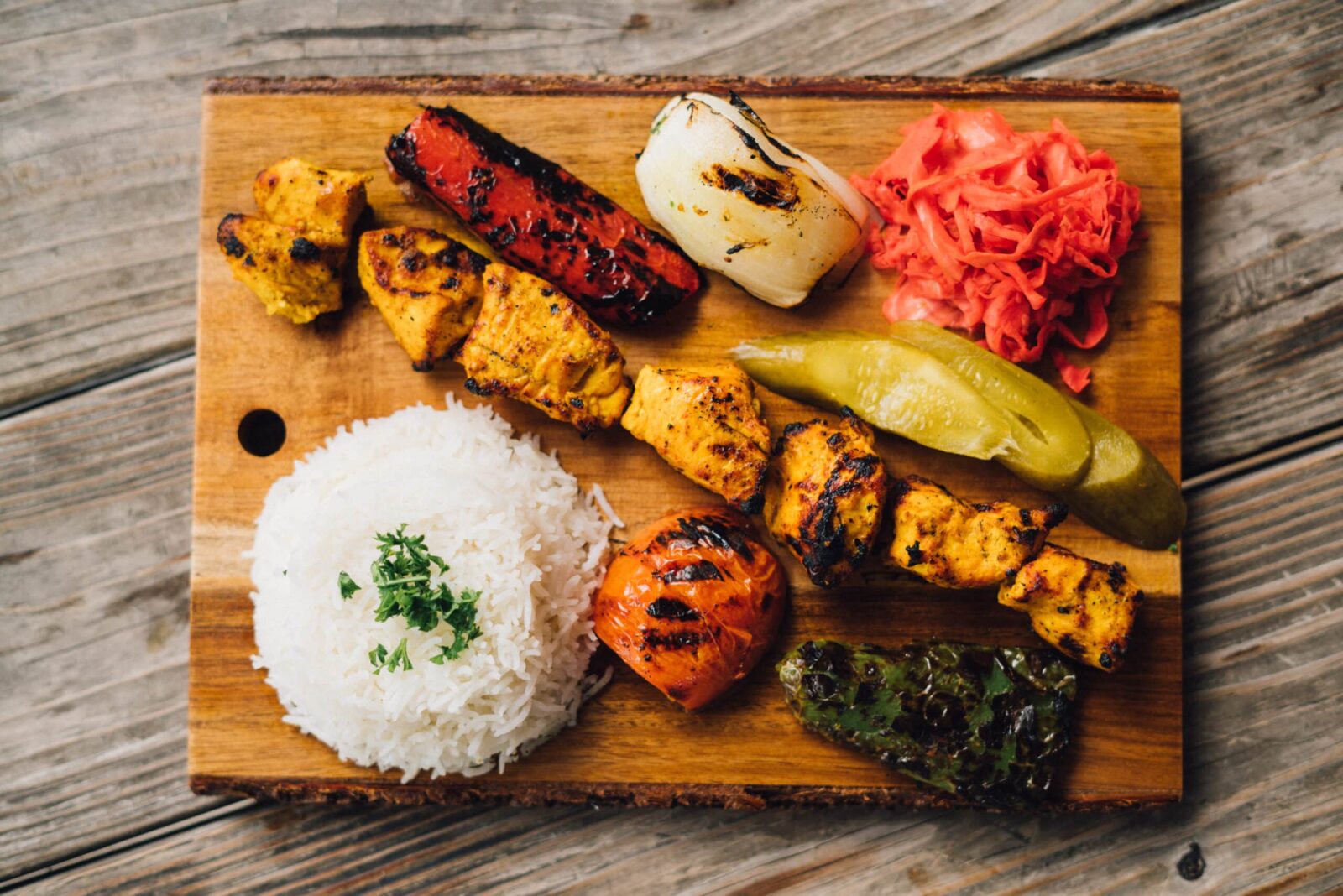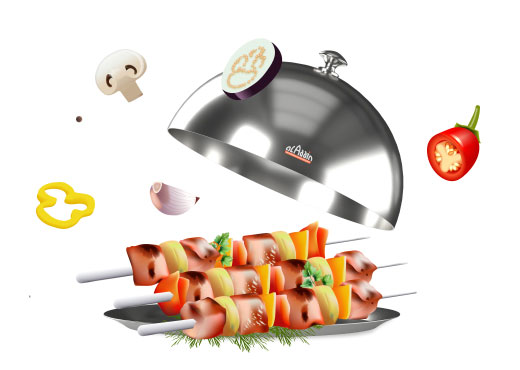The Mediterranean diet has been the epitome of healthy eating for decades. Ever since the New York Times advocated the diet for heart health over low-fat diets, many households have taken to the Mediterranean eating patterns and habits.
Even so, it’s one diet riddled with much controversy and misconceptions. For starters, there are no diet restrictions as in other diet plans.
You’re free to eat meat, carbs, and fats without defined portion sizes. Also, it’s one diet that recommends taking wine during meals. How cool is that?
You’re probably wondering if you can eat as much fish, wine, pasta, bread and still reap the benefits. Well, we’ve prepared this guide to demystify the myths and misconceptions around the diet.
What is the Mediterranean Diet?
Understanding the meaning of a Mediterranean diet is necessary before diving into the meat of the topic.
In simple terms, the Mediterranean diet emphasizes the consumption of healthy fats, plant-based foods, and moderate consumption of red and white meat.
The diet originates from Mediterranean countries including Spain, Greece, Italy, Lebanon, Turkey, France, and Croatia.
The inhabitants of these countries are big on eating plant-based foods like whole grains, vegetables, seafood, citrus, fruits, and moderate consumption of fish and red meat.
Even so we must note that the culinary options vary by country with some regions preferring some foods over others.
Italians, for example, are big on wine, pizza, and pasta but that doesn’t mean they are the primary components of the Mediterranean diet.
People living in the Southern region of France, on the other hand, enjoy various cheeses, butter-drenched croissants, and rich liver pates.
Conversely, the Greeks love a good plate of fatty lamb, honey-sweetened baklava, and rice.
While we appreciate the stark differences in food options, the bottom line is that the Mediterranean diet emphasizes the consumption of the following foods:
- Nuts
- Fruits
- Legumes
- Vegetables
- Whole grains
- Eggs (low intake)
- High intake of extra virgin oil
- Moderate consumption of red meat, poultry, fish, wine, and dairy products
However, the lack of defined portion sizes for the foods or the frequency of consumption breeds a ripe ground for misconceptions.
For example, terms like moderate, high, and low, are subjective, leaving much room for guesswork as to the true composition of the diet.
Addressing Common Misconceptions
Demystifying the following myths and misconceptions about the diet can go a long way in helping you reap its benefits:
Eat Plenty of Pasta
We all love a good plate of pasta and finding a diet that recommends it, can be exciting. In our definition, we found that the Italians include pasta in their Mediterranean diet.
However, it doesn’t mean all your meals should include pasta. The Mediterranean diet recommends eating a variety of grains including whole wheat bread, rice, barley, and pasta (based on Italian culinary preferences).
Although Italian platters consist of pasta, they’re accompanied by a healthy serving of vegetables, i.e. 60% of vegetables and 40% of carbs.
Also, they often cook pasta using healthy oils like olive oil, not the usual unhealthy fats. And if pairing it with a sauce, they avoid cream-based sauces as they contain unhealthy fats.
There’s No Defined Mediterranean Diet
There have been many iterations of the Mediterranean diet mainly due to different influences and dozens of recipes.
As such, some people believe that there’s no defined diet to follow. It couldn’t be further from the truth.
There’s one Mediterranean diet model we could follow and it remains consistent with its origins in Greece, Crete, and Southern Italy.
This model was first discovered in the 1960s when researchers wanted to find out the reason for the high expectancy rates and low rates heart-related problems among men living in those areas.
At the time the inhabitants’ diet comprised vegetables, fruits, whole grains, legumes, occasional consumption of red meat (usually once a month), fish, poultry, and seafood.
While the diet has gone through many iterations, this is the basic model defining the Mediterranean diet.
The Mediterranean Diet is Expensive
The Mediterranean diet has always been esteemed as a high-cost diet because of the addition of fish, seafood, and nuts. But it couldn’t be further from the truth.
Research conducted recently found that the diet is not only good for your health but also affordable.
The research compared three diets- the Mediterranean diet, the Australian Guide to Healthy Eating (AGHE), and the Australian Western diet.
After comparing their nutrition profiles and weekly costs, the students found that the first two diets met the nutritional requirements associated with good health and were much more affordable.
By contrast, the regular Western diet lacked essential nutrients like calcium, fiber, vitamin B6, potassium, zinc, magnesium, and vitamin E. What’s more, it had a higher salt content than its counterparts.
As for the costs, the Mediterranean diet costs $78 for a single-person household, $135 for a family of two, and $211 for a family of three people making it an excellent cost-conscious and healthy option for families.
Even so, food options like seafood and fish can make the diet somewhat expensive for some households. These budget tips should come in handy:
- Focus on seasonal foods: Since the traditional Mediterranean diet consists of seasonal fruits, it would help to purchase fresh fruits when they’re in season
- Buy food supplies in bulk: Foods such as whole grains, legumes, and lentils can be purchased in bulk and stored for use, helping you save money
- Purchase one type of cooking oil: You could be tempted to buy different cooking oils to cook food. Maintaining such a pattern can be expensive hence the need to purchase one type and use it to cook all kinds of foods. Extra virgin olive oil is highly versatile as it can be used to roast, fry, dress salads, etc
Eat Meat Nuts Every Day
Now, nuts are a big part of the Mediterranean diet but they’re not eaten daily. The Greeks, for example, only ate nuts when they were in season while the Cretans hardly hold them in high regard.
Nuts are known for their nutritional value as they’re rich in vitamins B6 and E, folate, and niacin as well as minerals like iron, copper, magnesium, and potassium. They’re also used for making sauces and sweet pastries.
However, a good rule of thumb is to consume them 2-3 times a week. Remember nuts are expensive as they are only grown in exotic locations and shipped worldwide. Including them in your daily meal plans increases your budget significantly.
Olive Oil is the Only Cooking Fat in the Diet
The traditional Mediterranean diet advocates for the use of olive oil as the primary source of cooking fat.
That’s because the crop is readily available around the Mediterranean region. The region’s climatic conditions favor its growth.
However, olive oil isn’t the only cooking oil used to prepare Mediterranean foods. You can use alternative cooking oils that have unsaturated fat like sunflower oil, flaxseed oil, canola oil, or peanut oil.
These oils have a protective effect on the heart.
Dispelling Myths
In addition to the misconceptions about the Mediterranean diet, we need to dispel some myths:
Myth: It’s a low-calorie, low-fat diet
On the contrary, the Mediterranean diet is a high-fat, high-calorie diet. Food options like nuts, eggs, fatty fish, and olive oil are rich in healthy fats and calories.
The trick is to pay attention to the portion sizes as the diet hardly shows the calorie count one must follow.
Myth: You Don’t Have to Exercise When Following a Mediterranean Diet
Some people get the notion that they don’t have to exercise when following the Mediterranean diet. This isn’t true.
The Mediterraneans have an active lifestyle that keeps their bodies healthy even without going to the gym.
By contrast, the modern lifestyle is largely sedentary and the only way to keep active is to go to the gym.
A combination of physical activity and Mediterranean meals keeps the body healthy.
Myth: The Mediterranean Diet Requires You to Forget about Alcohol
Most diets forbid alcohol intake entirely, but it’s not the case with the Mediterranean diet. You can take wine in moderation, i.e., a glass of wine for women and two for men.
Red wine is preferred because it’s rich in polyphenols which reduce the chances of developing heart disease.
Myth: Mediterranean Food is Bland
On the contrary, Mediterranean foods are delicious and full of flavor. Spices are an integral part of cooking Mediterranean foods hence the vast range of tasty food options available.
With spice options like ginger, nut, garlic, cumin, oregano, parsley, and chive it’s impossible to cook bland food.
And beyond transforming ingredients into a mouthwatering feast, their plant-derived compounds have health-promoting and disease-preventing properties.
Myth: The Mediterranean Diet is Exclusively Plant-based
Fruits, vegetables, legumes, seeds, and whole grains are the foundation of the Mediterranean diet. However, the diet isn’t entirely plant-based, you can eat red meat in moderation, fish, and seafood.
FAQ
What are the common challenges of starting the Mediterranean diet?
One common challenge is adjusting to a diet lower in red meat, processed foods, and sweets, which requires a shift in eating habits and meal planning. Another challenge might be finding and affording fresh produce and seafood, especially in regions where these are not readily available or cost-effective.
How does the Mediterranean diet fit into a fast-paced lifestyle?
Incorporating the Mediterranean diet into a fast-paced lifestyle may require meal prepping and planning to ensure that healthy, diet-compliant options are always available. Quick and simple Mediterranean recipes, as well as keeping pantry staples on hand, can help facilitate adherence.
Can the Mediterranean diet meet the needs of high-performance athletes?
While the Mediterranean diet is balanced and nutrient-dense, high-performance athletes may need to adjust their intake, particularly of carbohydrates and proteins, to meet their elevated energy and recovery needs. Consulting with a sports dietitian can help tailor the diet to their specific requirements.
Are there any nutrient deficiencies to be aware of when following the Mediterranean diet?
The Mediterranean diet is generally well-balanced, but individuals may need to pay attention to getting enough iron, vitamin D, and omega-3 fatty acids, especially if they consume limited amounts of fish, meat, and dairy products. Supplements and fortified foods can help fill any gaps.
How adaptable is the Mediterranean diet to various food allergies or intolerances?
The Mediterranean diet is highly adaptable to food allergies or intolerances, such as gluten or lactose intolerance, due to its emphasis on a wide variety of foods. Substitutions can be easily made, such as using gluten-free grains or lactose-free dairy products, without deviating from the diet’s core principles.
Conclusion
Demystifying the myths and misconceptions about the Mediterranean diet makes it easy to incorporate it into your lifestyle. For example, you can look for creative ways to use alternative protein sources like beans and lentils when you don’t have pricier items like red meat and fresh fish. Also, exercise is integral to reaping all the benefits of a Mediterranean diet. Happy eating!


